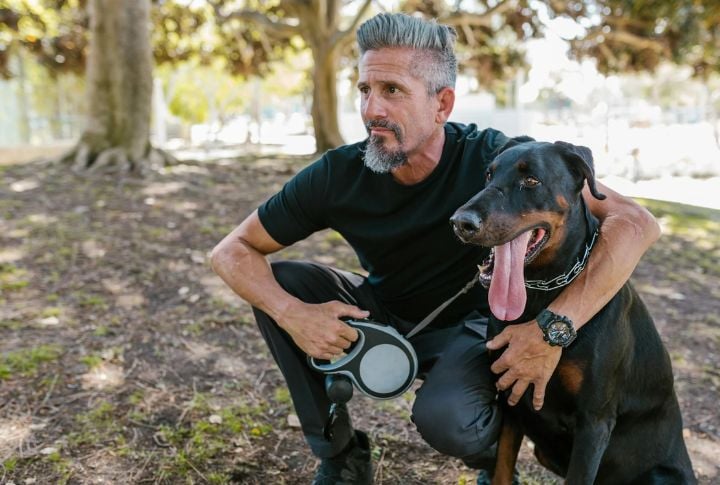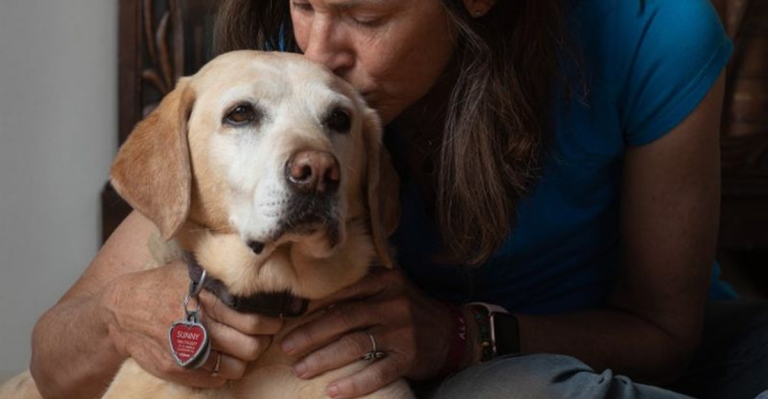15 Health Issues Dogs May Detect Before You Realize You’re Sick

You might think your dog’s just being clingy or curious, but sometimes, it’s more than that. Their nose picks up things even your doctor can’t yet measure. So, before alarms go off or symptoms show up, your pup may already know something’s off—and they’re trying to tell you. Here’s a look at 15 such health issues they can track in you.
Diabetes

A drop in blood sugar doesn’t just affect energy; it alters natural odors. Service dogs are trained to recognize hypoglycemia and respond ahead of common symptoms like dizziness. Others even press emergency buttons. If your pet unexpectedly appears anxious around you, checking glucose levels would be wise.
Cancer

Scientists have long studied how canines perceive cancer. Their noses identify volatile organic compounds emitted by tumors, even in the early stages. Confident pups fixate on a particular spot, nudging or licking continuously. So, when a loyal pet inspects a specific area, it’s worth looking into.
Infections

Dogs can accurately detect certain infections, including urinary tract infections and Clostridioides difficile, often before conventional medical tests. While there’s growing interest in their ability to identify bacterial infections linked to sepsis, direct scientific proof of sepsis-specific detection remains limited. But their sensitivity to scent continues to impress researchers.
Seizures

Although not all animals anticipate seizures, a few can identify shifts in body chemistry. Some dogs even react nearly an hour in advance by showing signs of distress. A pup refusing to leave your side out of nowhere isn’t just affectionate—it may predict an oncoming occurrence, especially if you have epilepsy.
Stress

Mood disorders affect more than emotional weight. Increased stress hormones like cortisol create an altered aroma that doesn’t go unnoticed by dogs. A study published at the National Library of Medicine shows that dogs can recognize variations in cortisol levels through scent, often responding with comforting or protective behaviors.
Stroke

Anecdotal reports suggest that changes in a person’s oxygen levels before a stroke might subtly alter their scent, prompting dogs to stay close or become restless. While intriguing, scientific studies have yet to provide solid evidence confirming this sensory ability.
Depression

Ever notice how your dog always seems to know when you’re feeling off? Their superpower isn’t just fetching—it’s picking up on your mood and scent changes as well. And your dog is also the remedy as they can give you a quiet nudge, staying close, and trying their best to make you laugh.
Migraine

To a well-tuned canine nose, migraines don’t strike without leaving a trail. Changes in biological markers, subtle inflammation, or hormone fluctuations produce smells that forecast an impending migraine attack. Some pets even hover protectively or act restless hours before symptoms hit.
Narcolepsy

Many dogs are walking alarm systems for narcolepsy. They sense altered physiological states before an attack and react by barking or standing guard. Your dog’s response is based on scent and behavior changes linked to chemical shifts in the brain that occur during narcoleptic episodes.
Imminent Labor

When labor draws near, dogs tend to become more alert. Some cling to their person’s side and refuse to rest elsewhere. Others grow restless, pacing, or whining without an obvious reason. Even a small change in behavior can be a reaction to hormonal cues they’ve quietly picked up.
Parkinson’s Disease

Parkinson’s disease lacks a definitive early test, but dogs might change that. Their noses detect symptoms before clinical confirmation, which has the potential to improve diagnosis. This discovery paves the way for better treatment options and a revolutionary shift in medical assessments.
Addison’s Disease

Some dogs pick up on scent changes linked to low cortisol levels in people with Addison’s disease. They may grow unusually focused or restless, often trying to get their owner’s attention. In some cases, their behavior leads to faster diagnosis and much-needed medical care.
PTSD

PTSD alters the body’s hormonal output, including a spike in cortisol. Dogs detect these shifts through scent and behavioral cues. Their early responses—like gentle pressure or persistent contact—help reduce adrenaline buildup and lower the risk of panic, dissociation, or harmful coping behaviors.
Liver Disease

Veterinary studies suggest dogs often react to scent changes linked to metabolic imbalances long before symptoms become visible to humans. When the liver struggles to filter toxins, body chemistry evolves, and produces a musty or sweet scent. While humans overlook it, dogs predict it early.
Blood Pressure Drops

Your dog might notice something’s off even when you feel fine. When blood pressure drops, body scent shifts slightly, and a sensitive nose catches it fast. If your pup suddenly won’t leave your side, they could be telling you about the changes you haven’t felt yet.






